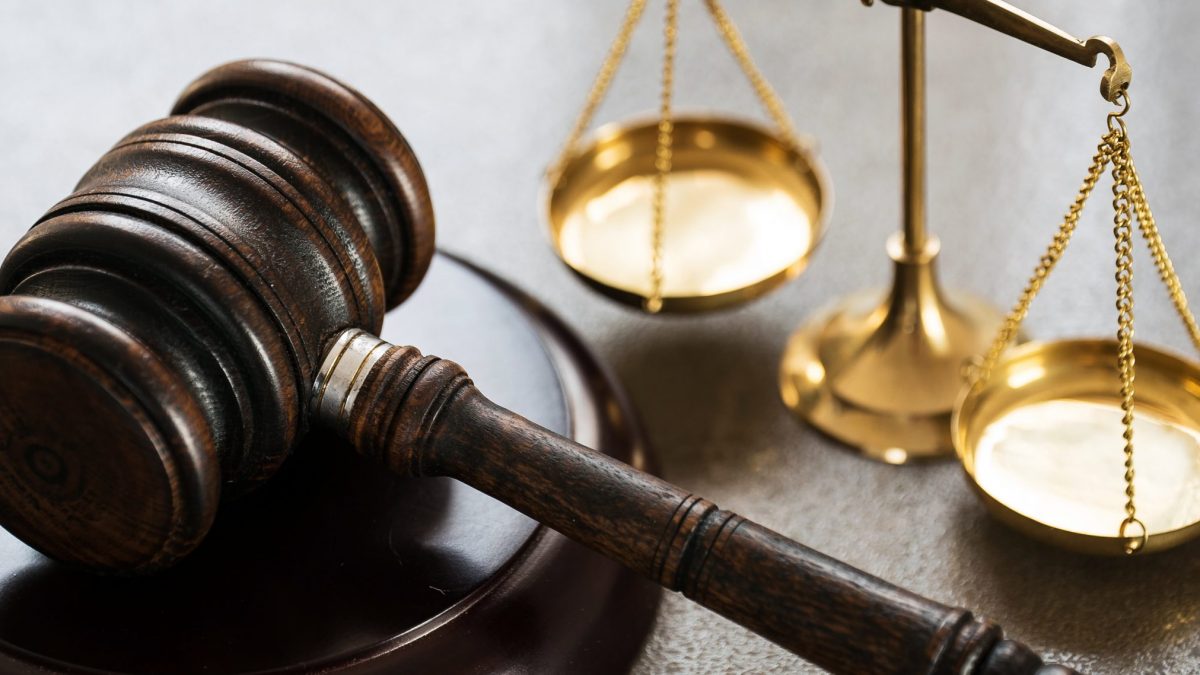
What is HM Land Registry?
February 15, 2021
Response to Covid-19 prompts relaunch of Simply Law Jobs
February 15, 2021Essay by Sahil C Madan
Introduction
Arbitration is an alternative adjudicative device to litigation through which private parties can seek a final determination of disagreements and resolve disputes. Modern arbitration’s semi-formalised nature has led some commentators to suggest that it is a form of ‘private litigation,’ contrary to the public nature of national courts. Arbitral decision-makers are private individuals who make final and binding decisions. National court judges serve the same judicial, decision-making purpose (though, perhaps, with a lesser degree of finality). Lord Mustill and Lord Boyd recognised that arbitrators are, in practicality, private judges.[1]
Private parties to international commercial disputes tend to favour arbitration over litigation. Between 2006 and 2015, the proportion of those surveyed who favour arbitration increased from 76% to 90%.[2] Parties prefer the greater party autonomy, flexibility, and finality offered by arbitration as opposed to the complexity, rigidity and unfamiliarity that may accompany court proceedings. Additionally, independence of the judiciary cannot always be taken for granted, and parties may lack confidence in the procedure. Fortier emphasised that it is crucial that arbitration embodies a fair and efficient mechanism which private parties can trust and engage with confidently.[3]
Views on the role which national courts ought to play with regard to arbitration differ greatly. Some commentators argue that, without being constantly tended to, the arbitral mechanism would implode, extinguishing any hope of just legal outcomes. Others argue that court involvement undermines the all-important principle of party autonomy which attracts private parties in the first instance. However, even devoted scholars of party autonomy, such as Lew, recognise the necessity of a degree of court involvement. [4] Thus, the debate revolves around whether this court involvement constitutes helpful support or counterproductive interference.
This paper will assess the necessity of national court involvement and explore several guiding principles which inform the nature of this involvement. It will conclude that the legal systems of arbitration and litigation must accept the synergetic nature of their relationship and share space with trust and confidence in order to provide fair and just outcomes to private commercial parties.
Laws Governing National Court Involvement
The UNCITRAL Model Law on International Commercial Arbitration[5] assists states with reforming and modernising their arbitral laws so as to consider international commercial needs. It details instances in which it is appropriate for national courts to become involved in arbitral proceedings. Article 5 expressly states that no court shall intervene except where so provided in this law. Article 6 indicates that such interference is solely for the purpose of ‘assistance and supervision.’ It is clear that the drafters of the Model Law intended for court involvement in the arbitral process to be limited to the provision of support and enforcement. The New York Convention on the Recognition and Enforcement of Foreign Arbitral Awards[6]expresses that courts should only intervene to provide support and enforce arbitration agreements and arbitral awards.
National arbitration laws typically reflect this intention. The English Arbitration Act 1996[7] (EAA) dictates that ‘parties should be free to agree how their disputes are resolved, subject only to such safeguards as are necessary in the public interest.’ Even where court intervention is permitted, it may exercise its discretion and decide against intervention, such as on the grounds of forum non conveniens. The French Code of Civil Procedures[8] is even more restrictive in its approach; Article 1448 provides that where a dispute is governed by an arbitration agreement, a court ‘shall decline jurisdiction, except if an arbitral tribunal has been seized of the dispute and if the arbitration agreement is manifestly void or manifestly not applicable.’
Lord Mustill likened the relationship to a relay race.[9] The Model Law and New York Conventions illustrate three timeframes during national court involvement is likely: (1) prior to and during the constitution of the arbitral tribunal; (2) during arbitral proceedings; and (3) during the recognition and enforcement of the award. The Model Law and New York Convention, alongside national arbitration laws, detail instances in which court intervention is appropriate: upholding the arbitration agreement; appointing arbitrators; deciding arbitrator challenge applications; issuing orders for interim measures; enacting witness attendance measures; enacting evidence preservation measures; enacting document disclosure measures; issuing interim relief in respect of parallel proceedings; enforcing awards; and setting aside awards. These exemptions aside, the Model Law and New York Convention envisage “a national court assisting with the constitution of the arbitral tribunal, following which the tribunal will be left in peace to determine the dispute and make an award which the court can assist with enforcing or setting aside.”[10] The clarity of these provisions ensures that the respective judicial spheres are relatively distinct.
Necessary National Court Involvement
The International Chamber of Commerce (ICC) surveys indicate that parties do not wish to preclude the option of court intervention as it offers a system of checks and balances.[11] It could be said that parties believe court involvement is necessary to uphold the minimum standard of fairness in the arbitration process. As noted, there are various instances in which the courts are called on for assistance.
Prior to the Arbitration
Prior to arbitration, a party to an arbitration agreement may attempt to initiate court proceedings, thereby violating the arbitration agreement. This is particularly common in the Indian subcontinent.[12] Ball described it as an “essential function”[13] of the national courts to refer such a party to arbitration by staying the legal proceedings – a requirement which is recognised by the Model Law and New York Convention. Similarly, a court may grant an anti-suit injunction prohibiting a party from sidestepping the arbitration process by filing a claim in a foreign jurisdiction.
Typically, the arbitration agreement will incorporate a mechanism for appointing the arbitrators. However, should they disagree on the way in which the arbitrators are to be chosen, the national court will assist with the selection process. In addition, if a party submits a challenge application against one or more of the arbitrators, the court will intervene to ensure the impartiality and independence of all arbitrators.
Albeit rarely, courts have been known to inappropriately intervene with proceedings by revoking the authority of the arbitral tribunal. In Petrobangla[14], the arbitral proceedings denied Petrobangla’s procedural request, following which it sought the assistance of the Bangladeshi courts. Despite the arbitral tribunal being vested with the power to determine its own procedure under the ICC Rules[15], the courts stayed the ICC arbitration and revoked the authority of the tribunal with the view that they had committed misconduct by denying the procedural requests. This case has been criticised by the editor of the Swiss Arbitration Association Bulletin, who wrote that the judgement “is in stark contrast with a number of principles of international arbitration… especially the case regarding non-interference of local courts.”[16]
During the Arbitration
The Model Law recognises that courts may intervene to effect ‘interim measures’ (‘provisional or conservatory measures’ under Swiss law[17]). This occurs where it is necessary to issue orders so as to, for example, protect assets or preserve evidence. Interim measures tend to fall under the umbrella exemption of maintaining the status quo. They are intended to operate as holding orders pending the issue of a final arbitral award.
However, the question remains: if an arbitral tribunal can issue an interim measure, why is court involvement necessary? In certain scenarios, the tribunal may not be able to effectively carry out these measures. For example, prior to the establishment of the arbitral tribunal itself, crucial documents or assets may disappear. Whilst most jurisdictions allow the appointment of an emergency arbitrator who can grant interim relief, the national court enforces this measure. The Hong Kong Arbitration Ordinance of 2013[18] allows Hong Kong courts to enforce measures on behalf of the emergency arbitrator regardless of whether it is in Hong Kong or not, but jurisdictions which lack such enforcement legislation rely on the designated court to ensure its effectiveness.
By definition, interim measures ordered by an arbitral tribunal do not resolve a dispute in themselves. Thus, they do not meet the requirement of finality under the New York Convention, potentially rendering it unenforceable internationally. Thus, where international enforcement of a measure is required, a party would be sensible to approach the relevant national court instead of the tribunal.
Article 27 of the Model Law notes that an arbitral tribunal may request assistance from a competent court in taking evidence. The EAA allows parties to utilise court procedures to secure the attendance of a witness before the tribunal to give testimony. Typically, arbitral tribunals do not have this competence, so it is necessary for the party to approach the court.
Additionally, a party may wish to make an ex parte application, often to prevent their counterpart from transferring funds or withholding evidence. Whilst recent revisions of the Model Law allow limited ex parte applications to the arbitral tribunal, these changes have not yet been effected at popular seats of arbitration. In such urgent circumstances, parties have no alternative but to apply to the national courts.
Certain national courts have been known to issue anti-arbitration injunctions, which have been compared to “nightmare scenarios”5 where courts ignore the wishes of the parties and undermine the principle of party autonomy. In HubCo[19], the foreign party allegedly committed acts of fraud and corruption. The Pakistani government applied to the Lahore High Court for an ex parte injunction preventing the claimant from proceeding with arbitration, citing no relevant authorities whereas the foreign party submitted a 100-page document abundant with Pakistani and English authorities. The national court decided in favour of the government – a clear abuse of the court’s supervisory powers.
Post-arbitration
A court can intervene to enforce an arbitral award and issue non-compliance sanctions where a party refuses to accept the award. Here, the court acts as a safety barrier of checks and balances to ensure fairness and impartiality. This role has been described as a “bulwark against corruption, arbitrariness, bias, improper conduct and… sheer incompetence.” Though some commentators argue that the requirement for court approval undermines the principle of party autonomy, parties tend to appreciate the fairness and impartiality which accompanies court supervision.
Occasionally, this system may have the reverse effect. In ONGC[20], a dispute concerning payment of damages under a supply contract was referred to arbitration, following which an award was rendered which held that ONGC was not entitled to any damages. The Indian Supreme Court set aside the award on grounds of public policy, deciding that ONGC did not have to prove loss – a wide interpretation which has been widely condemned.
Guidelines to Inform Nature of Court Involvement
The importance of maintaining necessary court supervision whilst avoiding abuse of supervisory powers is clear. The key to effective and supportive supervision lies in the nature of the courts themselves. The court should possess certain qualities which reflect an understanding of the respective components of international commercial arbitration.
International
The court should be welcoming of foreign commercial parties into the jurisdiction; this is reflected in the ‘friendliness’ of the local arbitration laws. Accordingly, courts should adopt a hands-off approach where the parties have agreed on arbitration because of the inevitable parochialism in most courts, regardless of how committed to an internationalist agenda they seem.
Commercial
The judges handling arbitral proceedings should understand the commercial aspect of the substantive dispute. Without understanding, it is impossible to adequately assess the importance or quality of a legal argument, especially given the often-technical nature of the matter. A court’s ability to consult relevant technical assistance would reinforce the parties’ and arbitrators’ confidence that is necessary to build trust in the seat of arbitration. As recognised by Allsop, “the mastery is not to second-guess the arbitrators, but to assess reliably any argument that arbitrators have dealt appropriately with the technical subject matter.”[21]
Arbitration
A court should understand the nature of arbitration – not simply possess knowledge of arbitration law and practice. Judges should immerse themselves within the arbitral community through education, dialogue, and professional collaboration. This should derive from an understanding of the need for the two legal mechanisms to co-exist so that fair, just, and efficient legal outcomes can be delivered. As justified by Allsop, this will allow a sophisticated and solid dispute resolution culture to develop.20
Conclusion
Just as no man or woman is an island, no system of dispute resolution can exist within a vacuum; arbitration relies on national jurisdictions for support and enforcement.[22] However, arbitration does not rely on courts for legitimacy; this exists as of right in accordance with the arbitration agreement, the New York Convention, and international arbitration practice. National courts should become involved to give effect to the arbitration agreement and offer support to uphold the proceedings. This includes aiding the establishment of the tribunal, collection and protection of evidence, and preservation of the status quo where necessary. Courts should enforce the arbitral award in recognition of the legitimate and autonomous character of arbitration. Courts must understand that arbitrators who are intimately involved with parties’ circumstances are better placed to understand the nuances of the matter. Equally, arbitral tribunals should understand that courts do not seek out parties to arbitration, rather it is the other way around. They should afford national courts the respect due as it is the national courts who hold the keys to recognition and enforcement.
Bibliography
Books
Blackaby and others, Redfern and Hunter on International Commercial Arbitration (Student Version) (6th edn, Oxford University Press 2015) 415-440
M Mustill and S Boyd, Commercial Arbitration (2nd edn, LexisNexis Butterworths 2001) 220
Studies
Rutger Metsch, ‘QMUL International Arbitration Surveys’ (QMUL School of International Arbitration, 2015) <http://www.arbitration.qmul.ac.uk/research/index.html> accessed 2 January 2021
Journal Articles
L Fortier, ‘Who Has the Last Word?’ [2001] 10 Journal of International Arbitration 69-70
M Ball, ‘The Essential Judge: the Role of the Courts in a System of National and International Commercial Arbitration’ [2006] 22(1) Arbitration International 73-94
J Lew, ‘Achieving the Dream: Autonomous Arbitration’ [2006] 22(1) Arbitration International 179–204
M Mustill, ‘Comments and Conclusions’ [1993] Conservatory Provisional Measures in International Arbitration: 9th Joint Colloquium 118
E Onyema, ‘The Jurisdictional Tensions Between Domestic Courts and Arbitral Tribunals’ [2016] 19 International Arbitration and the Rule of Law: Contribution and Conformity 481-500
A Tweeddale and K Tweeddale, ‘Arbitration of Commercial Disputes’ [2005] International and English Law and Practice
S Sattar, ‘National Courts and International Arbitration: A Double-edged Sword?’ [2010] 27(1) Journal of International Arbitration 51-73
M Scherer, Swiss Arbitration Association Bulletin [2000] 18(828)
J Allsop, ‘National courts and arbitration: collaboration or competition? Courts and arbitration as partners in the international dispute resolution project’ [2015] 81(4) Arbitration 434-438
J Lew, ‘Does National Court Involvement Undermine the International Arbitration Processes?’ [2009] 24(3) American University International Law Review 434-438
Statutes
UNCITRAL Model Law on International Commercial Arbitration 1985
New York Convention on the Recognition and Enforcement of Foreign Arbitral Awards 1958
English Arbitration Act 1996
French Code of Civil Procedure 2011
ICC Rules of Arbitration 2017
Swiss Rules of International Arbitration 2012
Hong Kong Arbitration Ordinance 2013
Cases
Niko Resources (Bangladesh) Ltd v Bangladesh Petroleum Exploration & Production Company Limited and Bangladesh Oil Gas and Mineral Corporation [2010] 1 ICSID
Hub Power Co v WAPDA [2000] 16 Arb Int’l SC 841
Oil & Natural Gas Corp. v. Saw Pipes [2003] AIR SC 2629
[1] M Mustill and S Boyd, Commercial Arbitration (2nd ed., LexisNexis Butterworths 2001) 220
[2] Rutger Metsch, ‘QMUL International Arbitration Surveys’ (QMUL School of International Arbitration, 2015) <http://www.arbitration.qmul.ac.uk/research/index.html> accessed 2 January 2021
[3] L Fortier, ‘Who Has the Last Word?’ [2001] 10 Journal of International Arbitration 69-70
[4] J Lew, ‘Achieving the Dream: Autonomous Arbitration’ [2006] 22(1) Arbitration International 179–204
[5] UNCITRAL Model Law on International Commercial Arbitration 1985
[6] New York Convention on the Recognition and Enforcement of Foreign Arbitral Awards 1958
[7] English Arbitration Act 1996
[8] French Code of Civil Procedure 2011
[9] M Mustill, ‘Comments and Conclusions’ [1993] Conservatory Provisional Measures in International Arbitration: 9th Joint Colloquium 118
[10] E Onyema, ‘The Jurisdictional Tensions Between Domestic Courts and Arbitral Tribunals’ [2016] 19 International Arbitration and the Rule of Law: Contribution and Conformity 481-500
[11] A Tweeddale and K Tweeddale, ‘Arbitration of Commercial Disputes’ [2005] International and English Law and Practice
[12] S Sattar, ‘National Courts and International Arbitration: A Double-edged Sword?’ [2010] 27(1) Journal of International Arbitration 51-73
[13] M Ball, ‘The Essential Judge: the Role of the Courts in a System of National and International Commercial Arbitration’ [2006] 22(1) Arbitration International 73-94
[14] Niko Resources (Bangladesh) Ltd v Bangladesh Petroleum Exploration & Production Company Limited and Bangladesh Oil Gas and Mineral Corporation [2010] 1 ICSID
[15] ICC Rules of Arbitration 2017
[16] M Scherer Swiss Arbitration Association Bulletin [2000] 18(828)
[17] Swiss Rules of International Arbitration 2012
[18] Hong Kong Arbitration Ordinance 2013
[19] Hub Power Co v WAPDA [2000] 16 Arb Int’l SC 841
[20] Oil & Natural Gas Corp. v. Saw Pipes [2003] AIR SC 2629
[21] J Allsop, ‘National courts and arbitration: collaboration or competition? Courts and arbitration as partners in the international dispute resolution project’ [2015] 81(4) Arbitration 434-438
[22] J Lew, ‘Does National Court Involvement Undermine the International Arbitration Processes?’ [2009] 24(3) American University International Law Review 434-438





